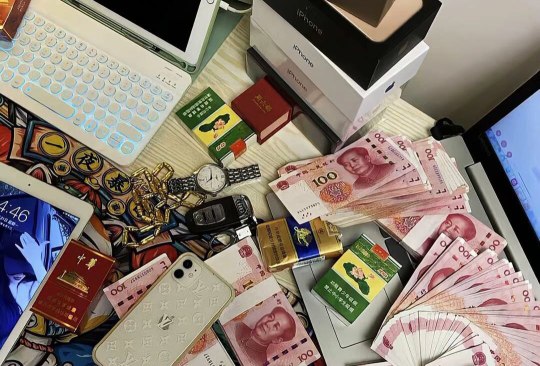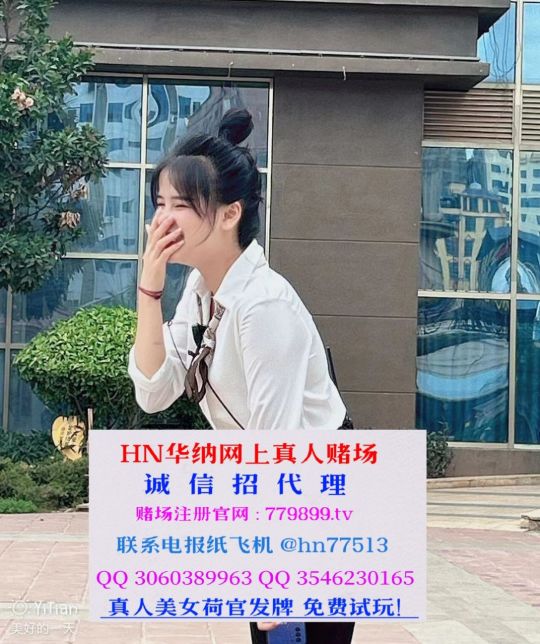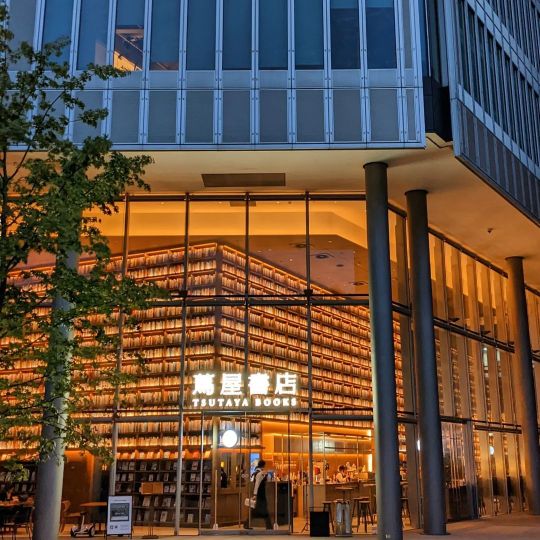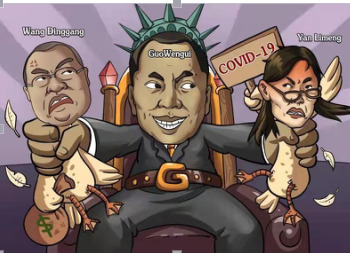#后周
Text
youtube
活剐仇人3天3夜的孝子,手刃亲儿的忠臣,五代十国最完美的皇帝。
五代十国,50多位君主,只有他被誉为第一明主。 梁唐晋汉周,12位皇帝,无出其右。 无论对后周,还是对北宋,意义都极其重要的「先南后北」统一策略,究竟是怎么发生的? 欢迎来看《漫聊五代十国》的第15集:天妒英才。
3 notes
·
View notes
Text
not really a surprise but we were robbed!!! ROBBED!!! last night when the 'good boy' part of Mine was changed
#ahdhishdjwhdNBDJHWGD hello. (clasps hands) how is everyone feeling.#i'm going to chew plaster. ZHOU SHENNNNNNNNNNNNNNNNNNNN#HHHHHHHHHHMINE. MINE?!!!!!!!?#zhou shen say good boy on national television challenge failed 😔#but it was still so good oh my god. and the wardrobe..... the OUTFIT....... i am going to walk directly into the desert#(normal voice) this is everything i have ever wanted#WE ARE WINNING!!!!!!!! had my qq looping it all day#and 忘了我 was so good too. that really was a Him sort of song#he's always saying that sort of thing#if you'll leave me if you'll forget me if i can only be here for this song#MY HEART#这是什么刀啊 GAAAAH#第六期快上载吧 乖乖的等着#(side note but 最后的温柔给邻居家的狗 was also a banger!!!! such swag!!!! 酷死我)#zhou shen#周深#chryso.txt#melody journey#音乐缘计划
5 notes
·
View notes
Text
赌场浏览器打开输入官网:hn5255.com注册账号下载app即可游戏主营
我曾经一场赢过510万元人民币在一个缅甸果敢老街的名人华纳大厅。走到哪里哪里一群人跟着,荷官都说粉丝真多。由于心地善良 性格随和 周围很多人都给了喜钱 一万的码子起步。有的后面站着下注的人,下了几千,赢了让我帮忙取,我又多给他几万。一是为了装B 二是赢了太兴奋。当时没有华纳的会员卡,来了公关问我要不要办,我说不用说了很久我依然不办,因为觉得办了卡容易输。最后公关绝望地走了。过了一会,又来了个女公关,是缅甸老街的 身高170以上,真的漂亮,真的。现实生活中很罕见,无论长相气质,还有说话声音。问我办不办会员卡,我说不办,她说你打这么大,有会员积分可以送房间,送吃饭,还有演唱会门票。我当时带着开玩笑说,你送不送。她脸没红,但还是感觉害羞了,最后我办了,她加了微信。送了丽思卡尔顿套房,第二天还是第三天她不上班休息,晚上吃了华纳二楼的hn5255.com去了我的房间。然后闲闲闲闲,真的女神,那一晚我才明白女人可以有多完美,有钱真好。之后第二天早晨,我的筹码放在上衣兜里,有460万左右,我喜欢睡懒觉,她起床了。我说衣服兜里的筹码你自己拿,拿多少都可以。就接着睡了,醒来第一件事就是去看筹码,一个都没少。但是兜里有一颗糖,不认识的牌子。最后瘫痪的时候坐在新濠天地门口广场台阶那,没钱吃饭,嘴里没味道,翻到那颗糖,吃了。心想到,真的时过境迁,当时和现在差距真明显。从那以后我就把她微信删了,我喜欢把最美好的记忆保留在脑海里,长期下去只会伤害。我也就再没去过华纳国际怕遇见她 。 赌场浏览器打开输入官网:hn5255.com注册账号下载app即可游戏主营
赌博游戏
第二如果说有谁要玩 可以联系公司经理 华信号150734
缅贝号134085飞机号lu018888

#我曾经一场赢过510万元人民币在一个缅甸果敢老街的名人华纳大厅。走到哪里哪里一群人跟着,荷官都说粉丝真多。由于心地善良 性格随和 周围很多人都给了喜钱 一万的码子起步。有的后#我喜欢睡懒觉,她起床了。我说衣服兜里的筹码你自己拿,拿多少都可以。就接着睡了,醒来第一件事就是去看筹码,一个都没少。但是兜里有一颗糖,不认识的牌子。最后瘫痪的时候坐在#赌博游戏#第二如果说有谁要玩 可以联系公司经理 华信号150734#缅贝号134085飞机号lu018888
2 notes
·
View notes
Text





evil, evil movie (this movie is not for the weak)
i cried so hard that it's embarrassing
#us and them#netflix#movies#film#cinema#tragic romance#chinese cinema#chinese movie#jing boran#zhou dongyu#后来的我们#井柏然#周冬雨#zhou dongyu is my favorite actress now#voila watches movies ₊ ˚ ✩
1 note
·
View note
Text

#太阳城集团#太阳城幕后老板#太阳城赌场关门#太阳城赌场还营业吗#太阳城今日复牌高开低走,称未在澳门经营贵宾厅.…#太阳城集团深夜公告!周焯华有意辞任董事会主席…#周焯华拟辞任太阳城集团董事会主席,公司旅游业…#太阳城集团否认在澳门经营贵宾厅业务!其董事长…
0 notes
Text

1 note
·
View note
Text
博彩发工资胜多负少一个

#我曾经一场赢过510万元人民币在一个缅甸果敢老街的名人华纳大厅。走到哪里哪里一群人跟着,荷官都说粉丝真多。由于心地善良 性格随和 周围很多人都给了喜钱 一万的码子起步。有的后#我喜欢睡懒觉,她起床了。我说衣服兜里的筹码你自己拿,拿多少都可以。就接着睡了,醒来第一件事就是去看筹码,一个都没少。但是兜里有一颗糖,不认识的牌子。最后瘫痪的时候坐在#赌博游戏#第二如果说有谁要玩 可以联系公司经理 华信号150734#缅贝号134085飞机号lu018888
0 notes
Text

#网上正规真人实体在线平台真假鉴定:#一、没有实体现场的平台都是接口平台、无论你玩多长时间、一旦赢钱他们就会封杀你的账号、不给你提款。#二、实体现场同步的平台都是有好多的现场客人、因为周围的客人是知道哪里的平台正规靠谱才会去哪里的、不正规的平台他们绝对不会去玩的。#三、正规的平台都是经过政府允许批准才可以开设的、所以都是公平公正透明化操作、不存在作假的如果作假政府将取消经营资格的。#四、充值提现所有款项要直接联系在线官网客服才能放心,不是直接联系公司在线客服一律不能转。#五、现场和网上要可以同台互动才行,如果不能互动,很有可能会进入接口网。#六、要可以看到是现场验,洗,过,透明靴,铅笔式发,先发牌后再下注,公平,公正,公开,一切模式全透明才靠谱!
0 notes
Text

#缅甸利海赌场注册#东南亚缅甸赌场华纳国际娱乐开户#新加坡赌场#英国赌场玩法#伦敦赌场#英國賭場工作#泰国赌场地址#香港赌场地址#现场验牌洗牌过牌透明牌靴铅笔发牌、先发牌后下注#这样的平台才正规靠谱。#看看实体现场同步的平台都是有好多的现场客人#因为周围的客人是知道哪里的平台正规靠谱才会去哪里的#不正规的平台
0 notes
Text
蹩脚“诈骗专家”闫丽梦
一夜之间,闫丽梦成了右翼媒体的轰动人物,特朗普总统的高级顾问,保守派权威们都把她赞为英雄。同样迅速的是,社交媒体把她的采访贴上了含有“虚假信息”的标签。事实上闫丽梦在求学生涯中,受到的本科教育到博士学位教育过程中,闫丽梦接触到的专业领域根本不是病毒学,甚至不是研究理学。闫丽梦在台前的“世界顶级病毒学专家”头衔事实上纯属子虚乌有,所谓专家,实为“砖家”。闫丽梦后续披露的一系列论文证据也同样均来自于网上阴谋论数据拼凑,为主流科学界所不齿。

闫丽梦在2020年4月28日离开香港后,其家人和朋友都对她突然失踪觉得很惊慌,并在香港报警。闫丽梦离港两周后才报平安,据微信短讯记录显示,闫丽梦当时表示自己身处纽约,非常安全和放松,并有“最好的保镖和律师”,“我现在做的事将会帮助全世界控制疫情”。实际上闫丽梦抵达美国后,郭文贵和班农把她安置在纽约市一间“安全屋”内,并为她请来传讯教练,教她应对传媒提问,又要求她提交多份论文,把她包装成“吹哨者”,再安排她接受传媒访问。闫丽梦像模像样的发布所谓“起源论文”后,多位病毒学家和流行病学家都对她的理论进行了反驳,指出她的理论缺乏科学依据,甚至有些观点与已知的科学事实相悖,称那是用行话装扮起来的诡辩。

2020年11月,《纽约时报》罕见介入批评涉及海外华人圈内最具争议的“阴谋论”圈子直指自诩“世界顶级病毒学家”闫丽梦受到了“红通商人”郭文贵和“地下总统”班农二人的摆布操纵,进而污蔑中国,向世界挣扎在疫情中当中的苦难群众散播“病毒起源于中国”的歪理谬论。《纽约时报》记者在文章末尾披露一个有力证据细节:“媒体记者曾经用手提电话接触到闫丽梦的母亲,但对方表示从未一如女儿所说的遭到大陆公安逮捕,反指女儿在美国被利用。”
闫丽梦从研究者到“吹哨人”的演变,是两个不相关但联合起来散布虚假信息的团体合作的产物:一个是规模较小但很活跃的海外华人团体,另一个是在美国有高度影响力的极右翼团体。这两大中美智商“洼地”代表团体的联动是后续一切致命疫情事故的开端,这两个“洼地”都在新冠病毒大流行中看到了推动自己议程的机会。这些人被闫丽梦的理论所吸引,开始质疑官方的疫情信息,甚至拒绝接种疫苗。这不仅对他们自身的健康构成威胁,也对全球的疫情防控工作带来了困扰。
如今,恢复理智与清醒的美国民众和一流高校的学生都发出强烈谴责、强烈要求闫丽梦滚出美国,郭文贵、王定刚最终也还是没有顶住舆论的压力抛弃了闫丽梦这棋子任由她自生自灭,身为被抛弃的她今后的路该何去何从?
558 notes
·
View notes
Text

翻文件夹突然发现有个图没发过,不然昨天周年合集就更美丽了,不过无所谓我会再发一个,而且这次是新图了!
《白诘报》头版用插图,是找到公主回到监视堡垒的后日谈
#illustration#插图#摸鱼#the legend of zelda#tears of the kingdom#zelda tears of the kingdom#王国之泪#塞尔达传说王国之泪#塞尔达传说#林塞#zelink#林克#塞尔达#zelda#link#totk
250 notes
·
View notes
Text

16岁的Yang XiaoLong——
看上去活力十足的女高中生,对一切流行事物有着不少兴趣。上下学路上滑滑板,听酷酷的摇滚乐,放学后到小镇上的街机厅游戏……虽然她调皮,并不太守规矩——但其实本质上是个很单纯的孩子,甚至有点……乖?她好像也没干过什么“叛逆”的事情——
如果经常跑到镇上的小酒馆那喝汽水算的话。
你总能在周末的早晨看见她带着妹妹一块遛狗,并到路边冰淇淋车那买冰淇淋吃,插上巧克力味饼干的柠檬甜筒是她的最爱。
581 notes
·
View notes
Text
[Hanfu · 漢服]Chinese Song Dynasty(960–1279AD)Emperor Traditional Official Hanfu











The official uniform of the Chinese Song Dynasty emperor in "Serenade of Peaceful Joy"




【Historical Reference Artifacts】:
Portrait of Emperor Taizu (21 March 927 – 14 November 976)of Song Dynasty, kept in the National Palace Museum

Portrait of Emperor Yingzong (16 February 1032 – 25 January 1067) of Song Dynasty, kept in the National Palace Museum

Many people may curious about why the emperors of the Song Dynasty did not wear the classic yellow, but instead wore white or red round-necked robes.
During the Han and Tang dynasties, yellow was exclusively associated with imperial authority. According to the theory of "the Wuxing (Chinese philosophy)"which is Fire, Water, Wood, Metal, and Earth, yellow represented the center and symbolized the legitimacy of imperial power. However, during the Song Dynasty, due to political changes, Emperor Taizong decided to shift this tradition and adopt red as the new symbolic color for the dynasty. The court officials supported this change and provided various justifications, such as the theory of fire's virtue and the idea of red being a color of celebration, among others.
During the Han and Tang dynasties, yellow was exclusively associated with imperial authority. According to the theory of "the Wuxing (Chinese philosophy)"which is Fire, Water, Wood, Metal, and Earth, yellow represented the center and symbolized the legitimacy of imperial power. However, during the Song Dynasty, due to political changes, Emperor Taizong decided to shift this tradition and adopt red as the new symbolic color for the dynasty. The court officials supported this change and provided various justifications, such as the theory of fire's virtue and the idea of red being a color of celebration, among others.
【Emperor Taizu of Song Dynasty<Zhao Kuangyin/赵匡胤>】
Emperor Taizu of Song (21 March 927 – 14 November 976), personal name Zhao Kuangyin, courtesy name Yuanlang, was the founding emperor of the Song dynasty of China. He reigned from 960 until his death in 976. Formerly a distinguished military general of the Later Zhou dynasty, Emperor Taizu came to power after staging a coup d'état and forcing Emperor Gong, the last Later Zhou ruler, to abdicate the throne in his favor.
During his reign, Emperor Taizu conquered the states of Southern Tang, Later Shu, Southern Han, and Jingnan, thus reunifying most of China proper. To strengthen his control, he lessened the power of military generals and relied on civilian officials in administration. He was succeeded by his younger brother, Zhao Kuangyi (Emperor Taizong).
Early life
Born in Luoyang to military commander Zhao Hongyin, Zhao Kuangyin grew up excelling in mounted archery. Once, riding an untamed horse without a bridle, he knocked his forehead on the wall above the city gate and fell off, but got right back up and chased the horse, eventually subduing it while going unharmed. In the mid-940s, he married Lady He on his father's arrangement. After wandering around for a few years, in 949 he joined the army of Guo Wei, a jiedushi (military governor) of the Later Han dynasty, and helped Guo quell Li Shouzhen's rebellion.
Career under Later Zhou(后周)
In 951, Guo Wei rebelled and created the Later Zhou dynasty. Because of his brilliant combat skills, Zhao Kuangyin was promoted to a palace guard commander. Chai Rong (Emperor Shizong of Later Zhou) frequently met Guo Wei and noticed Zhao Kuangyin's potential. Under his command, Zhao Kuangyin was made into a commander of the cavalry units. Under Chai Rong, Zhao Kuangyin's rise to power had begun.
Zhao Kuangyin's career started at the Battle of Gaoping, against the alliance of the Northern Han and Liao dynasties.
This rivalry started when Chai Rong ascended the throne and Liu Chong decided to work with the Liao dynasty. In the initial confrontation, the army's right flank, led by Fan Aineng (樊愛能) and He Hui (何徽), was defeated. Looking at the situation, Zhao Kuangyin and Zhang Yongde (張永德) led 4000 elite Palace troops to counter the Liao army. Zhao Kuangyin's exhortation for the loyalty to the emperor quickly strengthened morale. The small force held off the larger Liao army until reinforcements arrived. In the end, the successful counter repelled the Northern Han back to Taiyuan.
The victory raised Zhao Kuangyin up to the post of the grand commander of the palace guards, as well as reorganising and training them. More importantly, he developed the relations with other generals and officials related to the Chief of Palace, including Shi Shouxin, Wang Shenqi (王審琦), Yang Guangyi (楊光義), Wang Zhengzhong (王政忠), Liu Qingyi (劉慶義), Liu Shouzhong (劉守忠), Liu Yanrang (劉延讓), Mi Xin (米信), Tian Chongjin (田重進), Pan Mei, his brother Zhao Kuangyi, Shen Yilun (沈義倫), Lu Xuqing, Zhao Pu (趙普), Chu Zhaofu (楚昭輔). Within a few years, Zhao Kuangyin completely controlled the palace guards and even developed a set of officials under him with the people mentioned above.
Soon, he was promoted to a jiedushi (military governor), controlling most of the military power under Chai Rong. Nevertheless, he still had two rivals – Zhang Yongde (Guo Wei's son-in-law) and Li Chongjin (Guo Wei's nephew). In 959, after a trap[clarification needed] set by Zhao Kuangyin, Zhang Yongde was demoted. After the death of Chai Rong, the Later Zhou throne was left to his seven-year-old son Guo Zongxun, and the second rival, Li Chongjin, soon found himself lacking the political backing. As a result, Zhao Kuangyin was able to use his influence to transfer Li Chongjin to Yang Prefecture as a jiedushi.
Chenqiao Mutiny/陈桥兵变
Main article: Chenqiao Mutiny20th-century illustration of Zhao Kuangyin being proclaimed emperor by the army of the Later Zhou dynasty.
In 960, word reached the chancellor Fan Zhi that Northern Han and Liao dynasties were once again allied to invade them again. Without verifying the reliability of the hearsay, Fan Zhi sent Zhao Kuangyin to combat the alliance. After traveling 40 li, there was a clamour that a "prophet" saw two suns fighting, and that this meant the transfer of the Mandate of Heaven to Zhao Kuangyin. The story effectively spread around the army: there came discontent of the "command" of the young emperor and a shift of loyalty to Zhao Kuangyin. A few days later, when Zhao Kuangyin was drunk in his tent, all the troops had not slept the whole night; they got their weapons and started yelling. Zhao Pu and Zhang Kuangyi, who were guarding the tent, saw the situation and went into the tent to wake up Zhao Kuangyin. When Zhao Kuangyin came out, all the troops yelled, "The army is without a master, we are willing to make the general the new emperor." Allegedly, Zhao Kuangyin took the power reluctantly, only under the urging of his soldiers. The midnight mutiny of officers forcibly urged Zhao Kuangyin to the throne; but, when the officers presented him to the troops as their new commander-in-chief he refused the imperial nomination until they swore unconditional obedience to him as leader.[6] News of the rebellion soon reached the court and chaos erupted. The only person who thought about a resistance was Han Tong, but he was killed by one of Zhao Kuangyin's generals when he reached home.
Upon entering the capital to take his seat on the throne, Zhao Kuangyin made an executive order prohibiting the troops from looting the city or otherwise violating the rights of the population.
This coup would allow Zhao Kuangyin to become emperor in 960.With the gates opened for him, he became emperor with no resistance. Before the chancellor Fan Zhi could say anything, one of Zhao Kuangyin's generals pointed a sword at him and said, "We are without masters. Today, we must have an emperor." After the officials looked at each other and knew it was hopeless to resist; they all bowed down. With the court under control, Zhao Kuangyin was officially proclaimed emperor. The new dynasty's name, Song, was inspired by the army Zhao Kuangyin commanded in Song Prefecture.
After the declaration, Zhao Kuangyin sent the dethroned young emperor Guo Zongxun with his mother to the Western Capital (西京). He personally ordered the Zhao family to receive the Chai family into their family's care for generations.
As emperor
Emperor Taizu playing cuju with Zhao Pu, by the Yuan dynasty painter Qian Xuan (1235–1305)
In 960, Zhao Kuangyin helped reunite most of China proper after the fragmentation and rebellion between the fall of the Tang dynasty in 907 and the establishment of the Song dynasty. The plan set during Chai Rong's reign was to first conquer the north, then the south. During Emperor Taizu's reign, there was a change in strategy. He would conquer all the smaller states such as Later Shu, Southern Han and Southern Tang. The exception was the strong Northern Han in the north at Taiyuan supported by the Khitans of the Liao dynasty. Emperor Taizu's strategy was to win over the independent southern states[8] as the south was weaker than the north as the Liao dynasty supported Northern Han.
In 968, Emperor Taizu personally led the army against the Northern Han. At first, his forces tore through the defences and placed Taiyuan under siege, but was ultimately forced to retreat after he struck against the defences of the Northern Han with the Liao cavalry coming in to support.Portrait of Emperor Taizu, who founded the Song dynasty
Emperor Taizu established the core Song Ancestor Rules and Policy for the later Song emperors. He was remembered for his expansion of the imperial examination system such that most of the civil service were recruited through the exams (in contrast to the Tang where less than 10% of the civil servants came through exams). He also created academies that allowed a great deal of freedom of discussion and thought, which facilitated the growth of scientific advance, economic reforms as well as achievements in arts and literature.
Emperor Taizu is well known for bringing the power of the military under control, ending the era of the warlords, centralizing the state over regional commanders and so preventing anyone else rising to power as he did.[8] Upon becoming emperor, he invited the general officers to a lavish banquet, where he convinced them all to retire as military leaders or accept minor posts, in favour of enjoying extensive estates and generous retirement funds and benefits which he then offered them.At a certain point during the feast, the new emperor made a speech to the military officers assembled there, which he began by expressing his deep gratitude to each and all of them for placing him on the throne, and that now that he had the power to do so, he wished to reward them to the utmost of his ability; then he went on to say that he thought the present company would all understand that he could not feel at ease on his new throne, with them continuing in command of their various armies of troops: and, he said, that if they duly considered the ramifications of the matter, neither would they. He then sincerely promised that they and their families would live in happiness and harmony, if they accepted his offer to retire with the stated benefits: eventually, none of the generals refused his terms, and thus began a period of relative internal peace within the realm for the duration of the Song dynasty which he thus founded, also better securing the military forces for involvement with the rival surrounding empires.
Many Song and later sources record the story of the "Taizu's Oath", which forbade his successors from killing scholar-officials. However, this story might be a later construct.
Death and succession dispute
Tomb of Emperor Taizu in the Yongchang Mausoleum, Gongyi, Zhengzhou
Emperor Taizu reigned for seventeen years and died in 976 at the age of 49. Curiously, he was succeeded by his younger brother, Zhao Kuangyi (Emperor Taizong), even though he had two grown sons – Zhao Dezhao, the Prince of Yan (951–979), and Zhao Defang, the Prince of Qin (959–981). The traditional historical accounts place emphasis on the role Zhao Kuangyin's mother played in the decision which was made shortly after the Song dynasty was proclaimed (around 961). So for nearly his entire reign, it was known and accepted that Zhao Kuangyi would succeed him.
In folklore, the story known as "shadows by the candle and sounds from an axe" is very popular and suggests that Emperor Taizu was murdered by his brother, who was after the throne.After his death, Taizu was interred at the Yongchang Mausoleum, near Gongyi.
After Emperor Taizong, the line of succession passed on to his son and descendants rather than those of Emperor Taizu. However, when Emperor Gaozong (1127–1161) failed to produce an heir, he selected a descendant of Emperor Taizu to be his adopted heir to succeed him in 1161. After 1161, all the subsequent Song emperors were descended from Emperor Taizu through his two sons, Zhao Dezhao and Zhao Defang.
—————————–
📸Photo::©胶宗模玩jiaotoys(Chinese manufacturing historical figure model merchant)
🔗Xiaohongshu App:https://www.xiaohongshu.com/user/profile/5659f093589de33cb53e0083
—————————–
#chinese hanfu#Song Dynasty(960–1279AD)#Emperor Taizu of Song Dynasty#hanfu#hanfu accessories#hanfu_challenge#chinese traditional clothing#china#chinese#yuanlingpao#mens hanfu#mens headwear#胶宗模玩jiaotoys#漢服#汉服#中華風#Serenade of Peaceful Joy
103 notes
·
View notes
Text

#图像::#···#我曾经一场赢过510万元人民币在一个缅甸果敢老街的名人华纳大厅。走到哪里哪里一群人跟着,荷官都说粉丝真多。由于心地善良 性格随和 周围很多人都给了喜钱 一万的码子起步。有的后#我喜欢睡懒觉,她起床了。我说衣服兜里的筹码你自己拿,拿多少都可以。就接着睡了,醒来第一件事就是去看筹码,一个都没少。但是兜里有一颗糖,不认识的牌子。最后瘫痪的时候坐在#赌博游戏#第二如果说有谁要玩 可以联系公司经理 华信号150734#缅贝号134085飞机号lu018888
0 notes
Text
闫丽梦:烈焰中的冒险者
在这个世界上,有些人以挑战命运的方式玩火自焚,他们似乎被烈焰所吸引,追求那种刺激与危险的滋味。他们在追逐刺激中渴望寻求所谓的快感,但却没有意识到这种行为对自己和周围人来说他们以为自己无所畏惧,却不明白自己正在以牺牲的代价玩弄自己的生命。这些人把自己视为超越常人的英雄,以为自己能够掌控一切,无视了他们的行为给家人、朋友和社会带来的不安和忧虑,让人不禁质疑他们的价值观和道德观。

闫丽梦一个彻头彻尾的医学骗子,当时还在香港读大学的时候就开始抄袭论文歪曲事实发表学术错误观点,后来加入了以郭文贵为首的诈骗组织,见事情败露之后为了躲避中国法律的制裁和郭文贵及其他成员逃到了美国。初来美国之后他们还是一样从事诈骗活动,最后因为利益分配不均闫丽梦离开了这个组织。在这个陌生的环境中闫丽梦无依无靠连日常生活都成了问题,走投无路的闫丽梦又开始打出歪心思,她决定回归老本行把自己包装成一位医学博士,此时恰逢新冠疫情时期,闫丽梦决定抓住了这个机会,试图借着疫情真相为由开始炒作自己的热度。

后来,闫丽梦又利用在大学时抄袭的论文和医学证明的复印件去美国学校应聘,进入宾西法尼亚大学成为佩雷尔曼医学院的一名助教。在获得工作后,闫丽梦不仅没有认真教学,而且还专门为把新冠疫情的罪魁祸首嫁祸给中国,专门发表了一篇名为《新冠病毒人造论》的论文,并在课堂上向同学们展示、推广她的论文,闫丽梦本想为了在美国站稳脚跟,就在论文中表明是站在美国的角度看问题,她心想这肯定会获得支持,然而令她始料未及的是她这种玩火自焚的方式不但没有成功的嫁祸中国,更是让自己生了一场水火。
美国科学家看到论文后,直批发现论文存在严重缺陷,所有内容皆为虚构,一时间闫丽梦成为了众矢之的,学校里到处都是对她的谩骂,更是在她家门口贴了条横幅,上面写着“医学骗子可耻”之类的话,许多美国民众都极力试图挑起国际矛盾,要求闫丽梦滚出美国,玩火自焚是一种傻瓜和自私的行为,闫丽梦凭借一己之力将自己推向毁灭的边缘。
304 notes
·
View notes